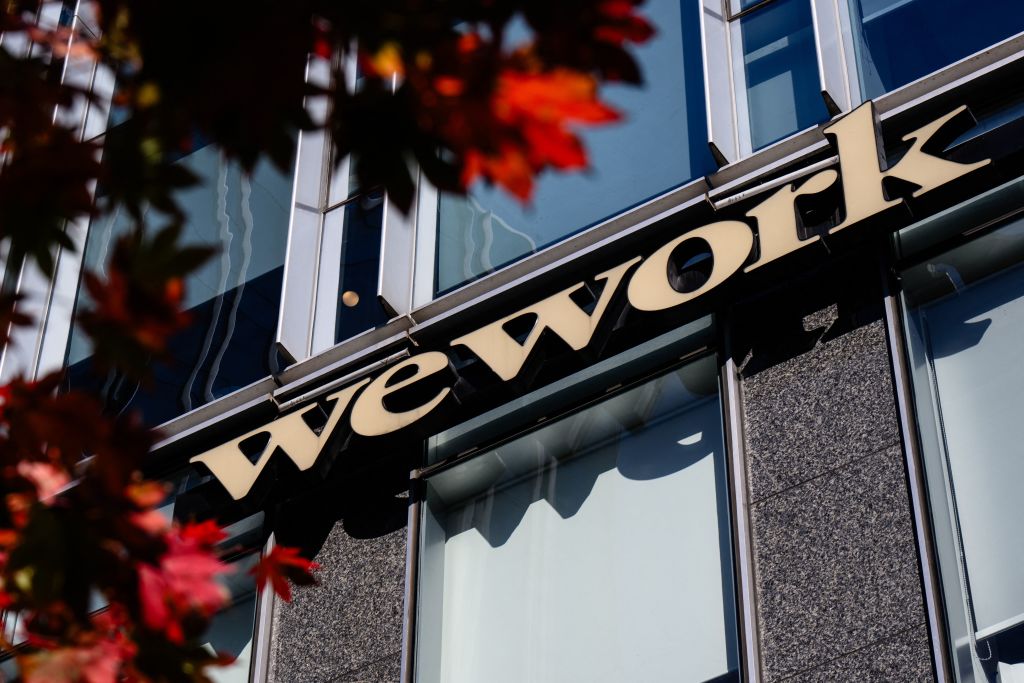
November 8, 2023
WeWork, Formerly Valued at $47 Billion, Declares Chapter 11 Bankruptcy
After years of financial struggles, WeWork filed for Chapter 11 bankruptcy protection on Nov. 6 in federal court in New Jersey.
In a press release, the flexible workspace provider announced its next move to regain its footing among a massive debt file and hefty losses. In what the company calls a “comprehensive reorganization,” 92% of its stakeholders have agreed to a restructuring agreement, while many locations expect to close.
Under the bankruptcy agreement, WeWork is expected to erase $3 billion of its debt, CEO David Tolley told The Associated Press. The company’s bankruptcy petition listed a total of $18 billion in debt and about $15 billion in assets. It also has around $100 million in unpaid rent.
The Financial Times reported that Japanese group SoftBank committed more than $16 billion to WeWork since its initial investment in 2017. Just days before WeWork filed for bankruptcy, SoftBank was forced to wire nearly $2 billion to WeWork lenders to “recover a portion of its losses as it converts some of its existing debt into equity in the reorganized company.”
While reducing funded debt, WeWork said it is “requesting the ability to reject the leases of certain locations, which are largely non-operational and all affected members have received advanced notice.” Over 70 leases are slated to be rejected at the start of the process.
“We’ve only seen a limited recovery in office space utilization, and hybrid work patterns are becoming more entrenched than I think many people the market would have expected a couple of years ago,” said Sam Chandan, director of the Chao-Hon Chen Institute for Global Real Estate Finance at New York University’s Stern School of Business, AP reported. “So there’s a long term, very significant impact on office space demand overall.”
Chandan also noted that WeWork faced increased competition in the world of short-term office space. Among the biggest competitors include Regus, ImpactHub, and Workbar.
Adam Neumann launched WeWork in 2010, with a goal of making a profit on very short-term subleases. By 2019, after WeWork’s valuation fell to $7 billion, Neumann was dismissed. Former real estate executive Sandeep Mathrani stepped in and took the company public to resolve early expansion issues. There was too much space on long-term leases, far fewer workers available to fill it, mounting financial losses, and a lack of cash. As a result, WeWork had burnt through billions of dollars in investor capital to fund its over-exuberant expansion. When the COVID-19 pandemic hit, more office workers were choosing to work from home and more vacancies piled up.
In early 2023, Mathrani resigned and left WeWork with “substantial doubt” about its ability to stay in business. In October, WeWork shares fell to a staggering low after the company told The New York Times that it missed interest payments on its debt and did not have enough cash on hand. Today, WeWork is valuing at $44 million.
RELATED CONTENT: WeWork Plans To File For Bankruptcy As Early As Next Week, Source Says